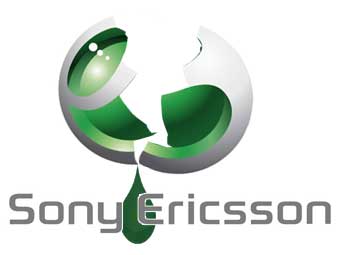Handset player Sony Ericsson seemed to have caught the telecoms analyst and press community off guard on Thursday morning, calling an early press conference to announce its joint venture split, just as most interested parties were making their way to Nokia World in London.
October 27, 2011

Handset player Sony Ericsson seemed to have caught the telecoms analyst and press community off guard on Thursday morning, calling an early press conference to announce its joint venture split, just as most interested parties were making their way to Nokia World in London.
The owners of the handset joint venture, Sony and Ericsson, are to part company, with the Japanese electronics firm acquiring the 50 per cent share of the JV held by Sweden’s Ericsson for €1.05bn.
But the surprise London press conference was vying for attention with Nokia World day two, kicking off just a few miles away. Still, most of the big news from Nokia came out on Wednesday, leaving the way open for Sony Ericsson to take the headlines today.
Speaking to telecoms.com this morning, Ovum analyst, Adam Leach, said the move was “Good news for both parties and not entirely unexpected especially considering the trend towards services and content. This is where we’re seeing Google and Apple make moves,” he said.
“Sony has a large content portfolio, so it makes sense to be able to control the devices this content is accessed on. It used to be that a phone was a phone and this was the area of focus for Sony Ericsson, while Sony concentrated on consumer electronics. But now that you can put a radio in anything this is not the case,” Leach said.
Ericsson is on solid ground in the infrastructure space, so it doesn’t really need the handset division any more, especially as it’s not a core offering, while Sony is now better placed to integrate the Sony Ericsson offerings with its consumer electronics portfolio.
So, it’s interesting times in the handset space. “Nokia is coming over as a more multicultural company, it’s definitely less Finnish and a testament to Elop that he’s transforming the culture of the company,” said Leach. “It’s a complete restart for them.”
According to Paul Lambert, senior analyst at Informa Telecoms & Media, Sony Ericsson’s failing, in a sense is that it has focussed on the mid section of the market, and while doing so hasn’t reacted to the trend of consumers gravitating to either the high-end (Apple and BlackBerry, and increasingly Samsung), or the low end. As such, Sony’s first task needs to be to focus Sony Ericsson clearly at a certain point in the market, rather than trying to offer something for everyone.
“The move makes sense for Sony as the company will try and capitalise on full-ownership of the handset JV by aggressively integrating Sony Ericsson smartphone technology into its range of network-connected consumer electronics devices – including tablets, televisions and PCs. Although Sony has sufficiently good technology and expertise to make a success of a cross-device connectivity integration strategy, the market will wait to see if it can tap into consumer taste better than rivals, Apple and Samsung to name just two, and deliver incremental value to them as well as to its bottom line. Sony’s content assets could enable it to offer something to consumers rivals can’t, especially in the gaming arena.
“For Ericsson, exiting the Joint Venture will result in a gain not only of €1.05bn in cash, but also an intensified focus on its core business – selling and managing telecoms infrastructure. Although Sony Ericsson was very much a separate entity from the day-to-day running of Ericsson, selling out of the company will inevitably consolidate the operator’s corporate identity and outlook around networks.”
Malik Saadi, principal analyst at Informa added: “Three or four years ago, when feature phones were prominent and smartphones were just a small niche, the centre of Sony Ericsson’s development was around Ericsson’s mobile platform (EMP). Ericsson was quite influential in the JV back then, but as the market switched to smartphones, EMP started to become redundant. So now the focus of development has shifted from Ericsson to Sony.”
The new smartphones are all around media; video, pictures, music and gaming. That’s why it makes sense for Sony to absorb the business, because they have been putting more effort in than Ericsson.
This latest development has also cast a spotlight on Ericsson’s chip JV, ST Ericsson.
“The move will shake a big company, which is already making losses as it is going through a restructuring, and this will be a big blow for them. I think ST Ericsson is very highly likely to be absorbed by or merged with another company, as its only customers now are smaller Chinese handset vendors,” said Saadi.
Sony Ericsson JV split
Makes sense for both parties (52%, 410 Votes)
Benefits Sony (21%, 167 Votes)
Is not a good move (16%, 127 Votes)
Benefits Ericsson (10%, 77 Votes)
Total Voters: 827
About the Author(s)
You May Also Like








.png?width=300&auto=webp&quality=80&disable=upscale)


_1.jpg?width=300&auto=webp&quality=80&disable=upscale)


.png?width=800&auto=webp&quality=80&disable=upscale)